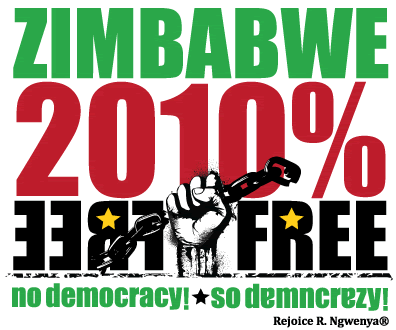A few years ago Kubatana started our series of Inside/Out interviews. The interviews are short and sharp and are based on a set of random questions, some flippant, like what’s in your pockets right now, to more serious stuff like, who inspires you?
Quite often people tell us that they Love these interviews because they allow for a different perspective on people; that they both amuse and give pause for reflection.
A few people that we’ve approached for an Inside/Out interview have point blank refused. Is it a case of over sized NGO egos refusing to slip their suits for awhile I’ve wondered?
In any case, our information assistant Upenyu Makoni-Muchemwa recently had the pleasure of interviewing the completely fabulous and amazing Mary Robinson, the first woman President of Ireland (1990-1997) and former United Nations High Commissioner for Human Rights (1997-2002). Mary and six international women leaders are visiting Zimbabwe to support and strengthen women’s role in governance and in the constitutional review process.
Apparently when Mary was asked to have some fun with our Inside/Out questions she was more than willing! Here’s what Upenyu had to say about her experience of interviewing Mary:
I had heard of Mary Robinson spoken of in lofty intellectual tones, as the High Commissioner for Human Rights, former President of Ireland and an intellectual. While conducting research in preparation for my interview, the image I had formed of a stern staid woman who took herself seriously was cemented in my mind. With her considerable academic and political achievements, I thought, how could she not be? The Mary Robinson I interviewed was none of these things. She was earnest and forthright in her answers, taking time to think carefully about what I asked her before she answered. I found her to be warm, and a person who truly believed in what she was doing, and in the women with whom she is working. The Inside/Out interview reminded me that she was just as human as I was, sharing the same fears, like the loss of family members, as many of my other interviewees.
Kubatana will be publishing a full interview with Mary soon but in the meantime here we go Inside/Out with her.
Inside/Out with Mary Robinson
28 April 2010
Describe yourself in five words?
I am an activist.
What’s the best piece of advice you’ve ever received?
I’ve received a lot of good advice – I didn’t always take it. I think it’s to develop my whole potential.
What’s the most ridiculous thing you’ve ever done?
I once went to a party of an American friend, disguised in a wig and a big bosom. I got away with it for the whole evening.
What is your most treasured possession?
This ring that my husband gave me on our fifteenth wedding anniversary and we are now in our fortieth year. It is very old and its a flower. If you are free you have it the other way around. It dates from 1770; we were married in 1970. He’s a very sentimental man, my husband, I’m glad to say.
What do you regard as the lowest depth of misery?
I think the invisibility of people who are suffering terribly, whether they are suffering because of poverty or they are torture victims.
Do you have any strange hobbies?
I like walking; when I’m in Ireland I walk a lot in the woods around my family home.
What do you dislike most about your appearance?
My hair. I don’t have good African hair; I have to keep putting curlers in it.
What is your greatest extravagance?
I’m not a great shopper, so my greatest extravagance is books. Right now I’m reading a novel about the Spanish civil war.
What have you got in your fridge?
That’s my weakness. You see it’s my husband who knows more about what’s in the fridge.
What is your greatest fear?
That something terrible could happen to an immediate member of my family. I’m a grandmother and I have four grandchildren. Family is very precious.
What have you got in your pockets right now?
Tissues.
What is your favourite journey?
Going home. Crossing Ireland to County Mayo, my mood instantly lifts. I’ve been outside Ireland now for five years in Geneva, working for the United Nations, and seven years in New York. At the end of this year I go home. I’m looking forward to that. I have very strong local agricultural reference points, and that’s very important when you’re trying to understand land issues. Being Irish I have a particular understanding of land issues because we had to fight the colonial power, which was Britain, and assert our Land Rights.
Who are your heroes in real life?
Like many people its Nelson Mandela. Being one of his Elders I’m part of a group that he brought together. He’s an extraordinary man. Archbishop Tutu is another favourite of mine. Also a lot of women that I’m encountering, including Nyaradzai, I’ve learnt so much from her.
When and where were you happiest?
I am happiest in my own home with my family.
What’s your biggest vice?
I would say the preoccupation with self. If somebody is in political life, they have an ego.
What were you like at school?
I was a tomboy with my brothers. I was very active in school; I wanted to be involved in things.
What are you doing next?
I am going back to Ireland and I will be creating a foundation on Climate Justice.










